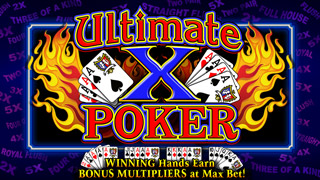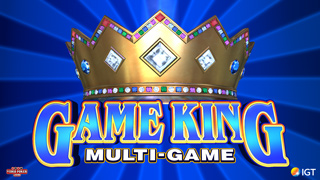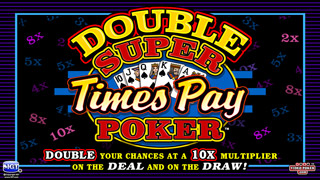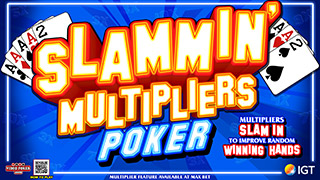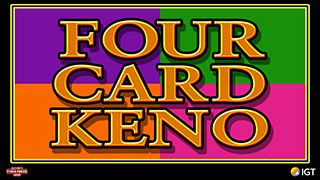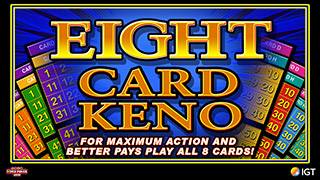Question about BJ
-
diceman9788
- Forum Rookie
- Posts: 10
- Joined: Mon May 28, 2007 12:36 am
Question about BJ
I was hoping someone could tell me what the chances of winning 3 hands in a row are before losing 30 total hands and also the chances of winning 4 hands in a row before losing 60 total hands. I'm not sure if there even is a way to figure that out, but I'm hoping someone knows.I have also been wondering about the video BJ on the gameking poker machines. The game that pays even money for BJ. I have talked to about 5 or 6 random people that I have met in bars and they all say the same thing, that you can win at that game if you just keep hitting the Let it Ride button when you win. I have also talked to some of the bartenders at some of the places I hang out in and they also say that most of the biggest payoffs they have in their places comes from the BJ game because of people just letting the winnings ride. I never really paid attention to this game since I have lived in Vegas, but now I've noticed that most of the casinos have taken the Let it Ride feature off of the game, so I'm wondering if there is some truth in what all these different people have told me. If anyone has any insight on this, I would really like to hear it and if its possible that if you just stick with the machine that it will eventually give one big winning streak or do all these people just think it works.
-
New2vp
- Video Poker Master
- Posts: 1884
- Joined: Mon Sep 11, 2006 4:02 am
Hey diceman,This is quite a non-trivial probability problem and difficult to explain the method of solution that I used in any short order.First of all, in blackjack, a little more than 1 hand in 12 ends in a push, so I considered pushes to be non-events to answer your question. What I mean by that is that a sequence like WPPPWPW which has 4 pushes interspersed in the 3 wins is a SUCCESS (in your first example) since there were no losses in between the required 3 victories. Thus, I considered these 3 wins to be "consecutive." If you mean something else, tell me and I can adjust the answers below. If this is part of some betting strategy and you're letting the wagers "ride" until you get 3 consecutive wins, this interpretation would make sense because you could essentially ignore pushes and continue to let wagers ride.Next, the probabilities of a win, push, and loss in blackjack are dependent on the specific rules of the game. I don't really know how to calculate those probabilities directly or exactly how those probabilities change with the different blackjack rules, but I found some probabilities that might be reasonable at http://wizardofodds.com/blackjack/appendix4.html. Those values were shown there as: pr(Win) = 0.424249, Pr(Push) = 0.084787, Pr(Loss) = 0.490964.With those assumptions, the use of something called a transition matrix, some logic, and a little bit of programming magic, the answers to your questions are:Probability of winning 3 hands in a row BEFORE accumulating 30 losses = 0.9571.Probability of winning 4 hands in a row BEFORE accumulating 60 losses = 0.9414.If you have other win/push/loss probabilities, let me know and I can adjust these answers if need be. Obviously, these answers will increase if there is a relative increase in the probability of a winning hand compared to that of a losing hand and vice versa. I would be unable to gauge the exact extent of this change without re-running a program with the new numbers.The program is relatively simple but the programming language that I used (GAUSS) has powerful matrix-handling ability and the sheer size of the matrices involved (92 x 92 for the first problem and 242 x 242 for the second) prohibit direct calculation by hand or even by Excel spreadsheet. There perhaps is some shortcut method to solve this in another fashion, but I'm betting the math behind it is fairly daunting.Hope this helps you; if you win a lot of money with it, remember your friends! (On the other hand, if you lose, just look at this as a learning experience!)
-
New2vp
- Video Poker Master
- Posts: 1884
- Joined: Mon Sep 11, 2006 4:02 am
For the answer to your second question, I would see this as somewhat like the Double Up feature in video poker. If you want a big jackpot, you can try to double your winnings some set number of times. Sure sometime you can get a winning streak of 7 times (once in 128 times) and you will win 128 times the original win, but the other 127 times you walk away with nothing. And do you have the discipline to stop at that 7th time or will you be tempted to try for the 8th time, and then the 9th, and then...well, you get the picture. Eventually on any streak you will lose.If you are able to stop at 7 times, the last time you are betting 64 times your original win. If you like that type of thrill, another way to get it is simply move up in denomination in the first place. Then you won't have to depend on a streak. Otherwise, the vast majority of the time you'll walk away a loser...but that one time, well, the bartender will get to tell others stories about you.In Double Up, the odds of winning are 50% and you get exactly double the amount bet. In blackjack, your odds of winning are a bit less than 50%, but sometimes you win more than double your bet, so it's a bit different, but the principle remains the same. Good luck, but pick a maximum amount of times for Let It Ride or Double Up and stick to it.
-
New2vp
- Video Poker Master
- Posts: 1884
- Joined: Mon Sep 11, 2006 4:02 am
Ok, PLEASE IF YOU HAVE A HEADACHE COMING ON AND/OR DON'T LIKE MATH MUCH, SKIP THIS, but...I've figured out a formula that is consistent with my program to determine the probability of x consecutive successes BEFORE a total of y failures.To begin with when we have the blackjack probabilities: pr(Win)
= P, Pr(Push) = T, Pr(Loss) = Q. Next, I calculate the relative probability
of a Win relative to a Loss (ignoring pushes) as p = P / (P+Q), so the
relative probability of a loss is q = 1 - p = Q / (P+Q).The rest turned out to be more straightforward than I thought even though I've never seen this described in a probability and statistics text.
The hard part is writing this in the reply box since I cannot easily use summation notation since it needs Greek symbols with subscripts and superscripts. The formula is:p^x * SUM [q^i * (sum p^j)^i]where the outside capitalized SUM has i going from 0 to y-1 and the inside lower-case sum has j going from 0 to x-1.Let me try to explain this for the case of 3 consecutive wins BEFORE a total of 30 losses.We could have several different strings of events: WWW works, so does LWWW, WLWWW, WWLWWW. There are 9 different ways to thread 2 losses and end with 3 wins; 27 different ways to put in 3 losses; and the number of possibilities keeps getting multiplied by 3 with each additional loss (that is because if you start with all the possibilities for say 6 losses, you can either add L, WL, or WWL to the beginning of all those possibilities to get the possibilities for 7 losses; thus for every combination with n losses, you can find 3 combinations with n+1 losses).Now we need a way to add up the probabilities of all these separate events.Using the formula I showed earlier substituting in 3 consecutive wins for x and 30 for y, we get:p^3 * SUM [q^i * (sum p^j)^i]where the outside capitalized SUM has i going from 0 to 29 and the inside lower-case sum has j going from 0 to 2.p^3 is the probability of ending with 3 straight wins.SUM q^i is q^0 + q^1 + q^2 + ... + q^29. This is adding up the probabilities of either 0 losses, 1 loss, 2 losses, ..., on up to 29 losses to accompany our 3 straight wins at the end.The inside of last part (sum p^j)^i] is p^0 + p^1 + p^2 for the probability of having either 0 wins, 1 win, or 2 wins before each loss. If we had 3 or more wins, we would already be at the end of our string
of events and that has previously been accounted for by putting in
p^3 at the beginning. This sum of probabilities for the strings of wins shorter than 3 must be multiplied in i times to correspond with the number of losses. Well, diceman asked and, for some silly reason, I decided to figure it out rather than sleep. Edit: It turns out that the summations can be simplified by standard methods using finite geometric sums and the formula all works out to:Pr(x consecutive wins BEFORE a total of y losses) =1 - (1 - p^x)^y where p is Pr(Win) on any one hand.It took a long time to get there, but the final formula is not really so complicated after all.
-
shadowman
- Video Poker Master
- Posts: 3587
- Joined: Mon Oct 23, 2006 5:42 pm
New2vp, I see you are building up your words per post value again.
Very nice analysis. I do hope diceman realizes that a Martigale type of betting strategy provides no advantage.
Very nice analysis. I do hope diceman realizes that a Martigale type of betting strategy provides no advantage.
-
New2vp
- Video Poker Master
- Posts: 1884
- Joined: Mon Sep 11, 2006 4:02 am
Thanks s-man. Unfortunately, it took me a roundabout way to figure out the answer. Maybe if I had started when I had more sleep, I could have deciphered it more quickly. The good news was with 3 different methods, I got the same answer...so that's a bit promising that the original answer might be right.Yeah, I sensed that diceman might be considering doubling or tripling up in certain situations. So long that he knows to stop after a few unsuccesful attempts and he's willing to trade a few big losses (that he can handle) for several small wins, doubling up the wager 3 or 4 times may not be catastrophic at blackjack, especially if you're combining it with a reasonable point-counting method. Not my cup of tea generally but I've been known to double a couple times myself when the remainder of the deck was in my favor...there's just something that feels better about going away a winner, even if the profit is small...however, gambling has always been an infrequent but fun pastime for me, not something I depended on for my standard of living.
-
diceman9788
- Forum Rookie
- Posts: 10
- Joined: Mon May 28, 2007 12:36 am
Thank you for all the hard work New2vp. I have been messing around with trying to win 3 hands in a row, I never actually tried to win 4 in a row, but I was just curious on which way would be better. I will stick with 3 hands since you say its slightly better.I haven't played on any live tables cause I really don't like how slow it is and that I have to deal with other people. I have been trying it online and the machines at the bars and so far I have had real good success with it. The couple times I have lost, I have more than made up for those. I was just wondering if I have been extremely lucky or that you may be able to grind it out. I think almost a 96% chance of hitting like you said is pretty good and I'll stick with it for now.Thanks again for all your hard work.
-
New2vp
- Video Poker Master
- Posts: 1884
- Joined: Mon Sep 11, 2006 4:02 am
Your welcome d-man. What betting strategy are you using? Just letting it ride for 3 hands?



